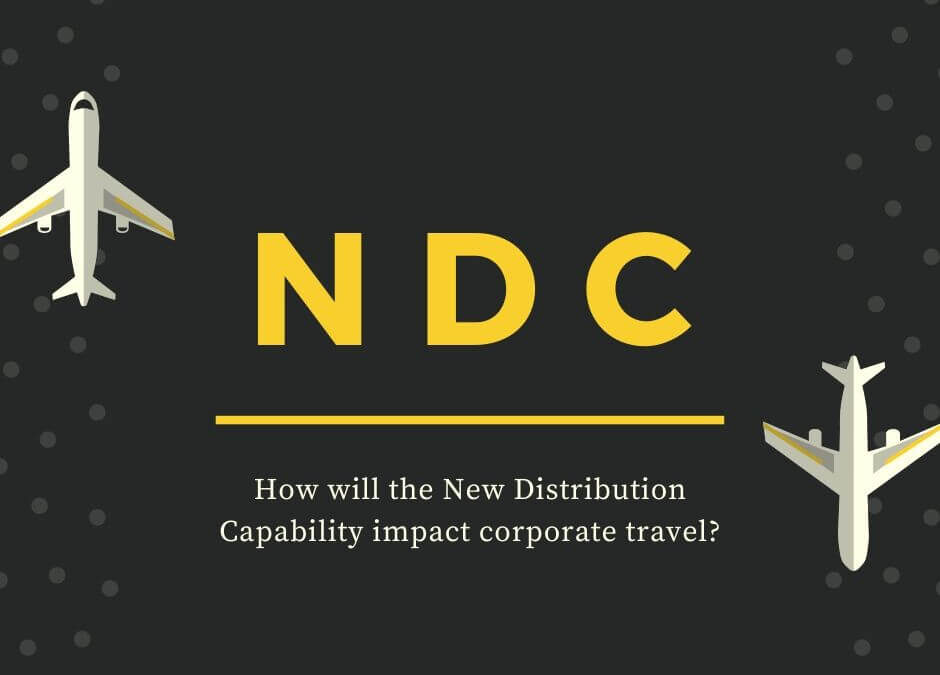New Distribution Capability is a hot topic right now! We’ve heard our customers voice concern over what it means for them. We thought we’d tackle the issue head-on and diffuse some of the confusion around it.
What is NDC?
Introduced by the International Air Transport Association (IATA) in 2012, the New Distribution Capability (NDC) Standard allows airlines to provide customers more relevant choices, greater personalization as well as unique, ancillary product and service offers. It’s not a program or platform. It is a standard that revolutionizes the way airlines previously sold their services. By moving away from legacy systems to a more digital merchandising model similar to other online retailers, airline companies hope that it can better meet the needs of its customers.
You’ve Seen NDC Before
NDC is a lot like what you’ve already seen from online retailers; a great example is Amazon. In order to shop on Amazon, you are first required to set up an account. This allows the retailer to track and evaluate every purchase you make. It uses a type of filtering algorithm to identify your purchases, and then rate those purchases to similar items available through their online marketplace. Thus Amazon is able to deliver a list of product recommendations tailored to your unique shopping history. Simply put, because you previously purchased X, you might like Y.
This is exactly what the airlines are attempting to replicate. Legacy systems lacked the ability to follow or understand their travelers’ behavior nor were they able to show them unique content offers. Now through NCD, airlines are able to create targeted content (more flight amenities) and dynamic pricing (fare options) most relevant for its audience.
When travelers book their trip, the online booking tool or travel agency provides the travelers’ frequent flyer number to the airline. Based upon the travel history and preferences associated with that code, the airlines can generate unique content offers.
The Push for NDC
Airline companies say that the GDSs are a more expensive distribution option than their own, direct channels. Airlines want NDC in order to gain more control over their distribution strategy and deliver special promotions directly to individuals thus reducing reliance on third-party distributors.
They seek to generate revenue from selling ancillary products and services this way and, ultimately, increase traveler engagement with their brand by delivering custom offers.
The decision on how airlines will distribute their product offers is a strategic decision based on individual airlines’ business objectives. The first set of offers will probably be very basic but content will evolve and grow over time.
Timeline for NDC Rollout
This is just the beginning of the story. GDSs are working with a select number of travel agency partners in beta testing with their NDC connections. They say this is a challenging undertaking because there is so much to be done. GDSs must also wait for airlines to release NDC integration schemas they need to build connections.
Some sources suggest that the airlines aren’t ready for the number of users they will get as a result of NDC. That said, the IATA Leaderboard (21 out of 300 IATA airline companies including United Airlines, American Airlines, JetBlue Airways, Lufthansa Group, British Airways, Air France and KLM) hope to complete 20% of their indirect bookings through NDC by 2020.
With this objective in place, you can expect airline-driven NDC activity to increase over the next two years. Currently, most of the airlines are either testing or live with at least one NDC application.
By 2021, airline distribution will change from legacy systems to dynamic, traveler-driven technology. Each airlines’ NDC offer will vary as it evolves over time. As it does, its impact will become clearer for corporate travel. While it could be disruptive, its impact on the landscape of corporate and leisure travel is yet to be seen.
Trondent’s Position on NDC
The fact is NDC is a moving target, evolving by the day. No one can articulate with any degree of certainty about what its final outcome will look like because its assimilation is so fluid. We expect that each GDS will have a different reaction to NDC. Trondent is following the topic closely and we are in constant communication with our partner GDSs, OBTs and TMCs in order to ascertain how implemented changes would impact our services.
We do not anticipate that much would change in the way we work since our solutions revolve around PNR content. That said, we are prepared to make all necessary technology updates required to facilitate NDC content and provide our clients with the best possible solutions, regardless of where the bookings originated.
Please do not hesitate to contact us at sales@trondent.com with any questions and concerns on this matter!

